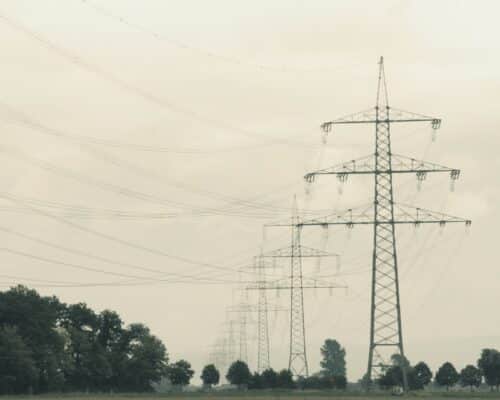The Future of Earth is at Risk: Thanks to Climate Change
cornerstock / Shutterstock.com
27 March 2023 – by Viktor Tachev
How Long Will Earth be Habitable for Humans?
In its latest report, the IPCC states that the livable future of earth is at risk due to climate change. The science group’s key message is that the climate risk is increasing and, without immediate action, the Earth might become inhabitable. The key to avoiding such a scenario is immediate and deep decarbonisation through the replacement of fossil fuels with renewables.
The IPCC Synthesis Report in a Nutshell
On March 20, the Intergovernmental Panel on Climate Change (IPCC) released the AR6 Synthesis Report: Climate Change 2023, described by United Nations Secretary General António Guterres as a “how-to guide to defuse the climate time bomb”. It covers the latest science on climate change and gives a blueprint for the much-needed near and long-term responses for avoiding harsher climate impacts.
Some of the key conclusions are as follows:
- The pace and scale of climate action to date are severely insufficient, and current plans fall short of what is needed.
- Governments should stop building new fossil fuel infrastructure, and stakeholders on national and corporate levels pushing this agenda are directly endangering our future.
- Overreliance on questionable and expensive technologies like bioenergy with CCS, carbon-dioxide removal, offsetting and more poses significant risks.
- Deploying CO2 reduction strategies across industries and companies that aren’t engaging in immediate deep cuts is damaging climate action.
- Parts of Africa, Asia, Central and South America, LDCs, small islands and the Arctic are suffering from the harshest climate change impacts.
- Climate change adaptation can improve communities’ well-being and reduce climate change risks.
- There is sufficient climate financing available to start cutting emissions immediately.
- The losses and damage we witness will continue, hitting the most vulnerable people and ecosystems the hardest. This will take an unprecedented toll on people, economies and the environment.
We Have the Tools and Resources to Tame the Climate Crisis
The IPCC strongly advises immediate and ambitious short-term action for deep emissions cuts. Furthermore, it notes that we already have feasible and effective tools for climate change adaptation available today.
According to the authors, the core focus area for taming the climate crisis is building renewable energy sources at scale. The report includes other suggested measures:
- Strong new regulations must be introduced that stimulate immediate change in net-zero commitments.
- Governments, investors, central banks and financial regulators should join forces to optimise and increase (by three to six times) green financing mechanisms and sustainable investments. Developing countries, in particular, will require external funding to meet adaptation needs.
- Climate change adaptation and deep, immediate emission cuts should go hand-to-hand. Otherwise, the world will increasingly see changes that it won’t be able to adapt to.
- Collective action to protect the most vulnerable communities and ecosystems is integral for an equitable and just energy transition.
- Carbon removal technology should be used only on top of deep emissions cuts. It can’t serve as a leading solution since it would only worsen climate impacts.
- Climate action should be a continuous and consistent process, not a one-off measure. National, sector and corporate emissions should decrease yearly.
- Reducing emissions from the entire spectrum of greenhouse gases (methane in particular) is critical.
An Urgent Need For Climate Action against Global Warming
The IPCC report warns that the world is rapidly burning through its remaining carbon budget as the world population growth increases. What’s worse is that this problem doesn’t seem to be a high priority for global leaders, considering their latest moves.
For example, COP27 ended without an agreement to phase down oil, gas and coal. In 2022, China, the world’s biggest emitter, approved its largest expansion of coal-fired power plants since 2015. The US government approved a new Arctic drilling project to produce oil for the next 30 years. Meanwhile, oil companies continue to enjoy record fossil fuel profits and deepening fossil fuel investments at the expense of clean energy.
Scientists say that there is no scenario in which we don’t hit the 1.5°C global warming threshold. Furthermore, the UN warns that without the urgent transformation of national decarbonisation strategies, the world will likely pass the 1.5°C threshold by 2030.
Moreover, delaying action past 2030 will create permanent and unresolvable problems.
Climate change is already causing widespread, irreversible consequences to nature and people, including the loss of life, loss of habitats, more frequent and extreme weather disasters, food and water insecurity, reduced economic growth and more. Around half of the world’s population today lives in climate-vulnerable regions. In the past decade alone, deaths from floods, droughts and storms in these parts of the world were 15 times higher.
Current policies are taking the world on a trajectory towards 2.7°C or more of global warming by 2100. As a result, scientists argue that the chance of having a liveable future on a habitable planet is hanging by a thread, as the consequences will get worse with every fraction of a degree of warming. However, they also note that we can still secure a liveable, sustainable future for all if we act now.
Replacing Fossil Fuels With Renewables: The Key to a Sustainable Future of Earth
To limit warming to 1.5°C and avoid catastrophic consequences, the world must reach net-zero by 2050. However, this can’t happen with fossil fuels like coal and natural gas as the backbone of the global energy system. To hit the 1.5°C target, the global use of coal, oil and gas without CCS should be reduced by 100%, 60% and 70% by 2050, respectively.
Climate arguments aside, there are also economic reasons to jump ship when it comes to fossil fuel projects. The IPCC report notes that coal and natural gas assets will be stranded before 2030 and 2050. Furthermore, questionable technologies like carbon capture and storage and CO2 removal remain decades off deployment due to existing limitations and are among the most expensive options. This makes them suitable and reasonable choices only as complementary options, not as fundamental technologies for the energy transition.
To avoid the climate and financial risks associated with fossil fuels, the world needs a transformative change and a transition to renewable-powered energy systems and mass electrification. The IPCC notes that clean energy sources outperform fossil fuels in every facet by being cheaper (in terms of new infrastructure and LCOE), more secure and more scalable.
From a purely financial point of view, scientists note that climate finance is cheaper than paying for climate damage. However, it is currently considerably less than what the world needs to remain aligned with the Paris Agreement’s targets.
Ensuring a Habitable Earth’s Future Requires Action
The decades of disregarding scientific warnings and delaying climate action are now coming back to haunt us. The IPCC warns that without faster and deeper emissions cuts, parts of the world will become uninhabitable. The group stresses that the choices we make today will reverberate for hundreds or even thousands of years.
The IPCC isn’t expected to issue new reports until 2027 or later. However, this shouldn’t mean inaction on the regulatory front. Scientists have provided more than enough information to inform global leaders, enabling them to take meaningful action on emissions reduction.
“It’s not that we are depending on something that still needs to be invented. We actually have all the knowledge we need. All the tools we need. We just need to implement it.”
Dr Friederike Otto, Imperial College London climate scientist and IPCC report contributor
The progress made before and during COP28 will reveal whether global leaders are responding to the climate crisis and taking the necessary action. One thing is clear, however. Every fraction of a degree matters, and with the clock ticking, so does the timing of every move.
by Viktor Tachev
Viktor has years of experience in financial markets and energy finance, working as a marketing consultant and content creator for leading institutions, NGOs, and tech startups. He is a regular contributor to knowledge hubs and magazines, tackling the latest trends in sustainability and green energy.
Read more



